Community of Chiechama village has transformed 500 to 600 acres of land into a thriving hub of collective farming, primarily led by women and young mothers. (Photo Courtesy: Neizolie Rüpreo)
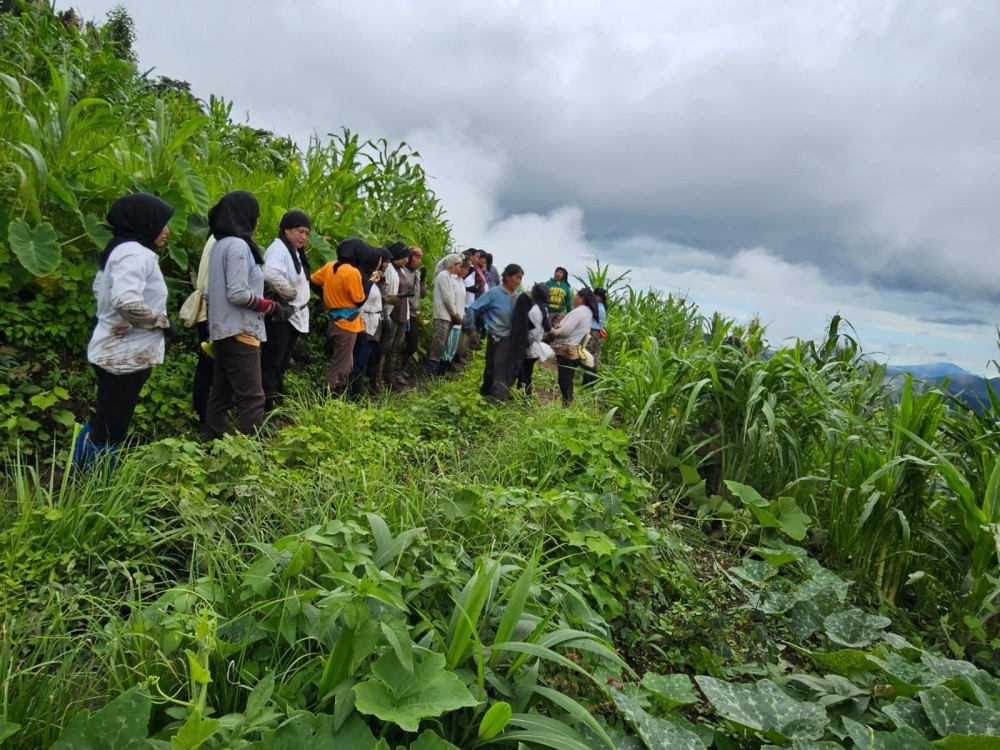
Morung Express News
Kohima | August 7
In the tranquil hills of the Greenfield Airport, Ciethu at Chiechama village, about 17 kms away from the capital, Kohima, the community of Chiechama village has transformed 500 to 600 acres of land into a thriving hub of collective farming, primarily led by women and young mothers.
What began as a humble initiative three years ago aimed primarily at engaging young mothers in productive livelihood activities work, has now flourished into a success story of economic self-reliance and a strong community spirit.
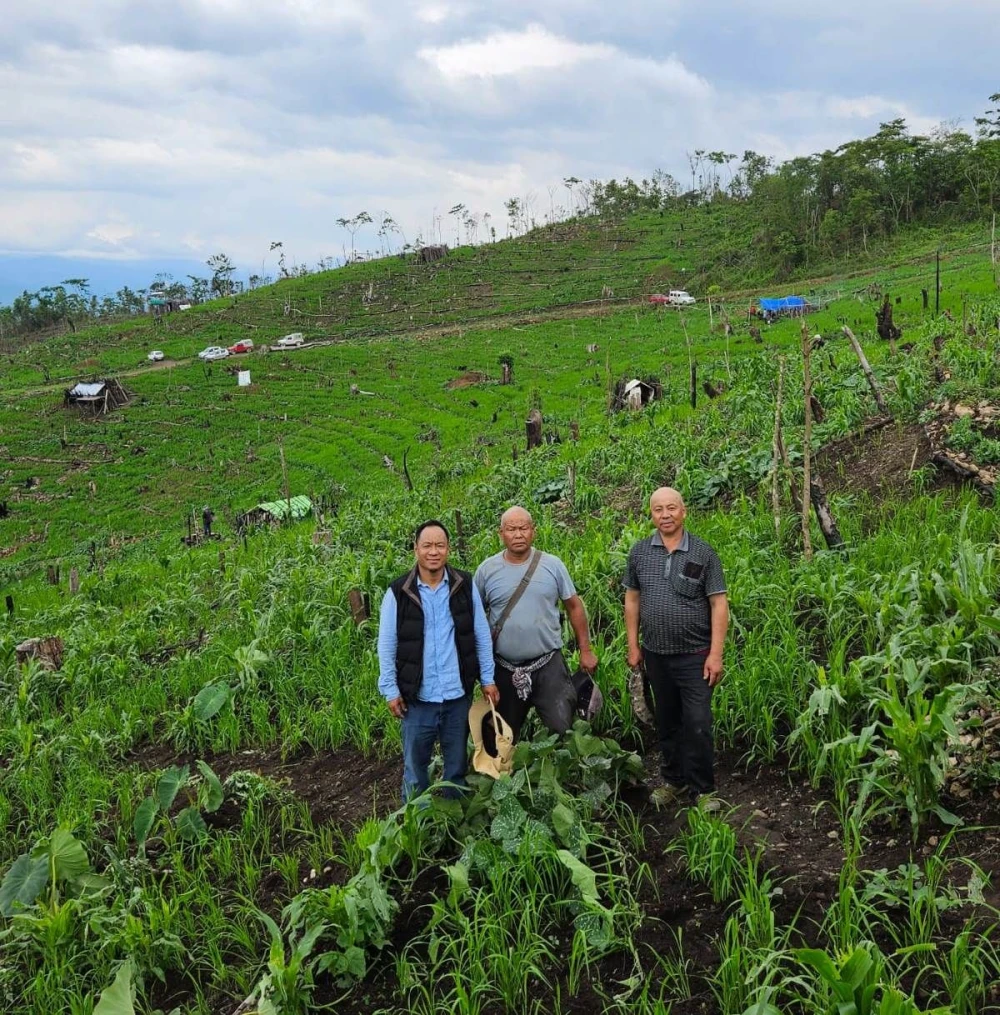
The Chiechamiapfü Mechü Krotho (CMK) has been organising the ‘Jhum Fair’ since 2023, which it was learnt, has been a great success.
As hectic preparations for the 3rd edition of the Jhum Fair is underway scheduled to be held on August 8 at Chiechama village, the fair not only showcases the bountiful harvests of Ciethu, but also manifest how collective effort can uplift livelihoods, empower women and build strong community bond.
The spark that started it all
Speaking to The Morung Express, Neizolie Rüpreo, a member of the village council (VCM) and the man behind conceptualising the idea of community farming three years ago recalled how it all started three years ago’
Rüpreo said, some families were mobilised, though hesitant at first, to take farming activities in the Rüpreo community owned land, which eventually saw remarkable success, as local organic produce found eager buyers, and thus sowing the seeds of transformation.
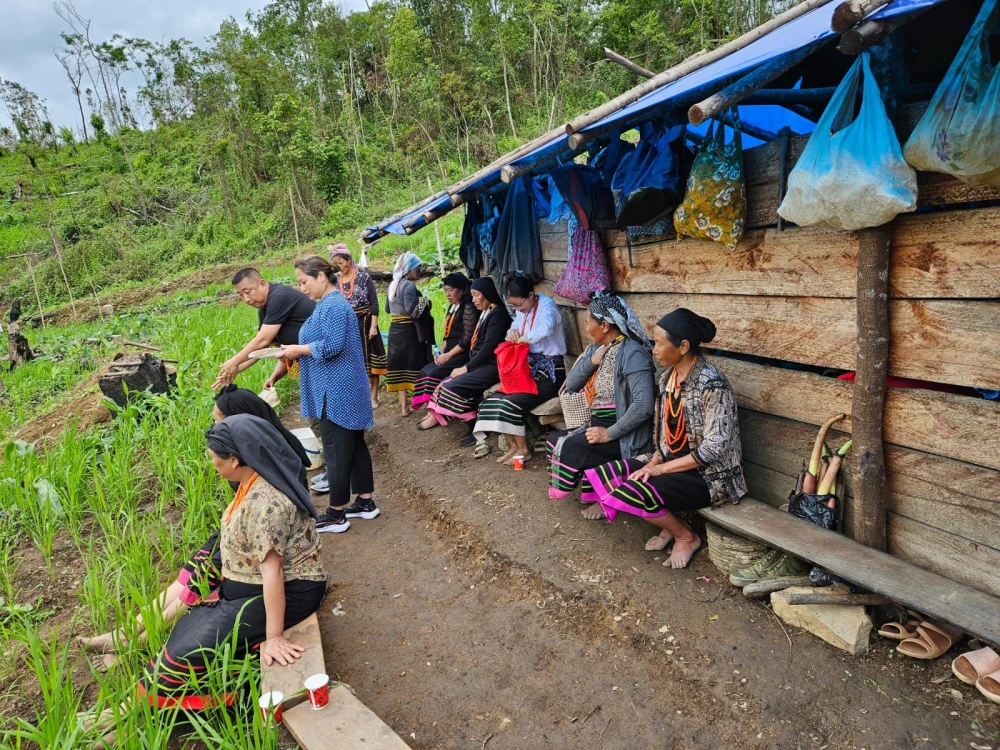
Encouraged by the outcome, the idea was shared to the Chiechamiapfü Mechü Krotho to encourage women, especially young mothers, to engage themselves in productive activities. Subsequently, the MMK had to encourage the young mothers to step into this new venture, and in 2024, collective farming initiative took root in Ciethu.
The Ciethu stretch, he said, belongs to the state government. However, as no development activity has taken place yet, the village council has sought the permission to utilise the land for farming.
Farming with a purpose
Today, 262 households from the village are part of this growing movement, cultivating a rich variety of local produce such as cucumbers, pumpkins, maize, yam and seasonal vegetables.
Rüpreo said, the focus is not on cultivation of rice but of vegetables, which are supplied in the local markets, and last year it has brought in an impressive income of almost Rs 2 crore, which he viewed as a remarkable achievement for a rural community effort.
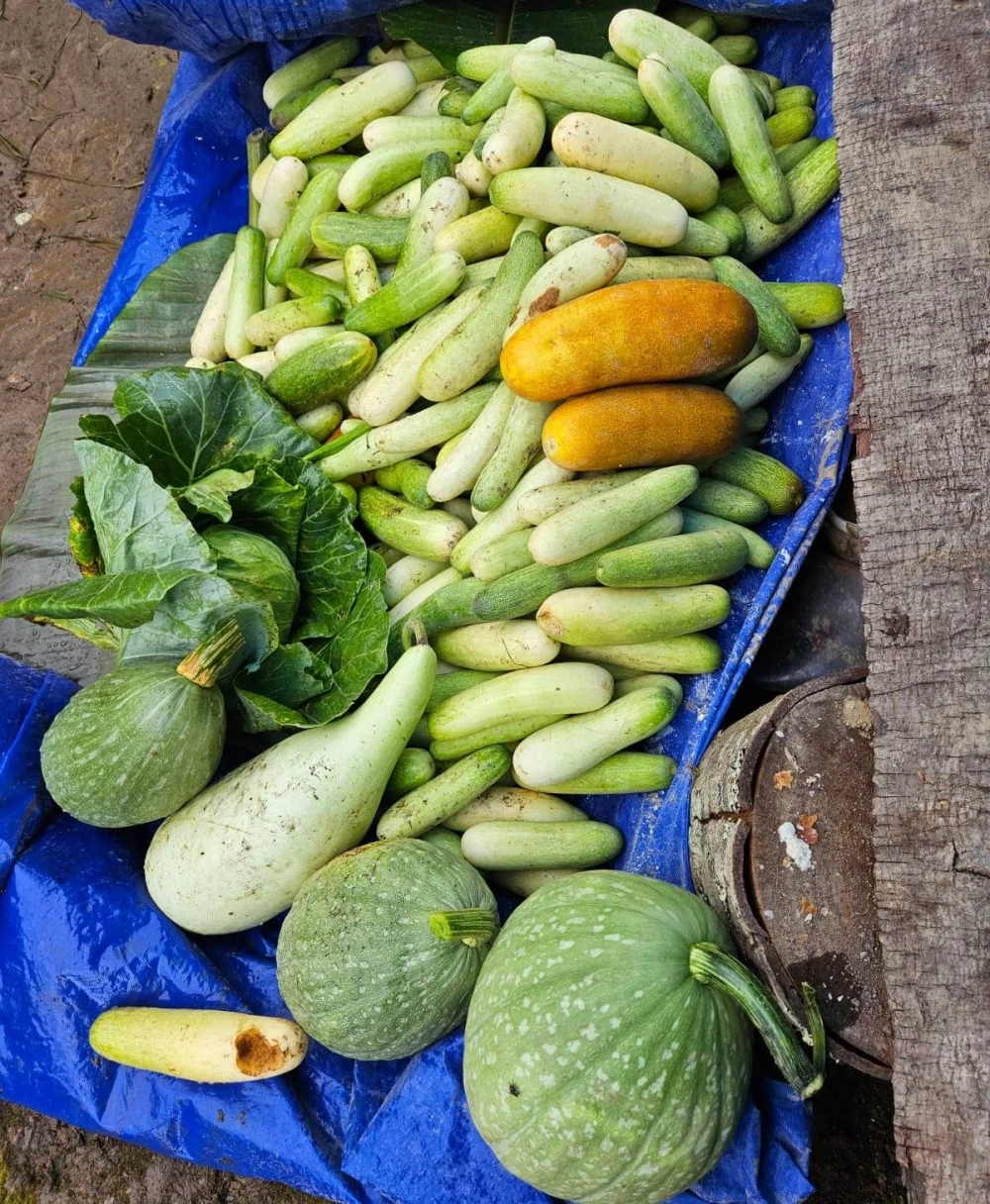
He appreciated the MMK and the farmers for their enthusiasm stating “the women are the real heroes. It is their dedication and tireless work that has brought prosperity and a sense of togetherness to our village.”
When asked about the impact of the collective farming and the Jhum Fair, Rüpreo said, the living standards of many families have significantly improved with many families being able to send their children in private schools.
Women lead the way
Lahienuo Metsieo, an executive member of the MMK and an active participant in Ciethu’s farming, spoke with joy and pride about how the initiative has reshaped lives in her village.
According to her, “beyond the economic benefits, this initiative has fostered strong emotional and social bonds among us, and we find joy and strength in our shared work and achievements.”
She informed that the farmers all go together in the field on the fixed days, worked together side by side, sing, ululate, share meals and help each other finish the work. “We even stay in the fields together. Despite the physical labour, we find happiness and joy in each other company” she added.
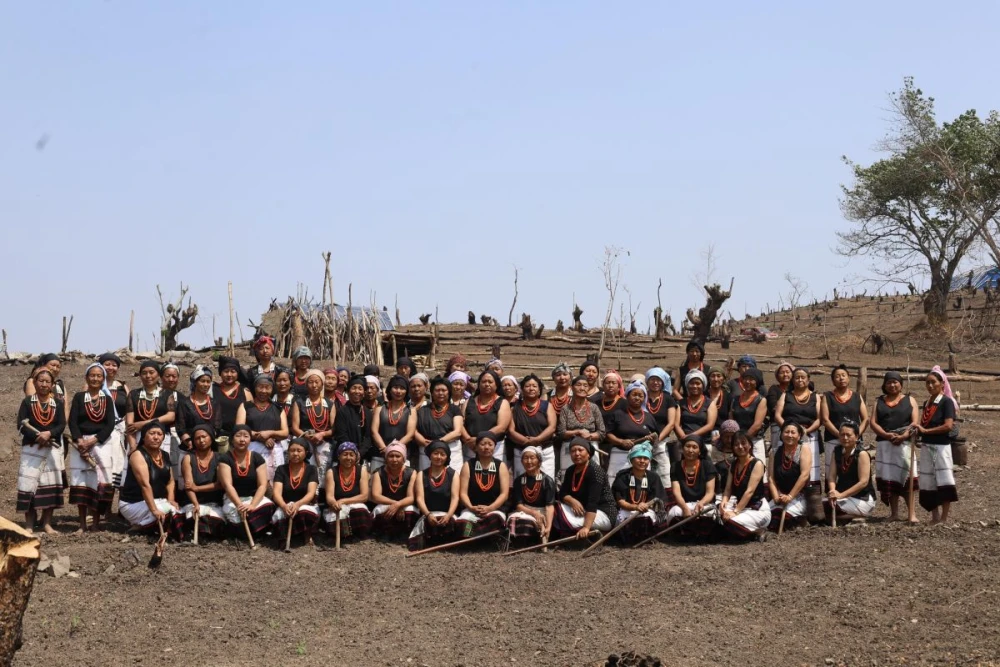
The soil, Metsieo said, is so fertile that anything that is planted grows so well and healthy ‘we don’t need any artificial fertilizers.’ She affirmed that all the produces that comes from Ciethu are purely organic, and informed that once the rice is harvested, they will start with the winter crops and vegetables.
‘We have nurtured the Ciethu into a sustainable community farming. However, as and when the government requires, we understand that we have to leave it anytime’ she said matter-of-factly.
Stating that there are still huge areas of unused land at Ciethu, she was optimistic that they could continue their farming activity in the future. Whether they can continue or not, perhaps, the spirit of social bonding and community pride that has been sowed at Ciethu will remain firmly rooted in the hearts of Chiechama people.






